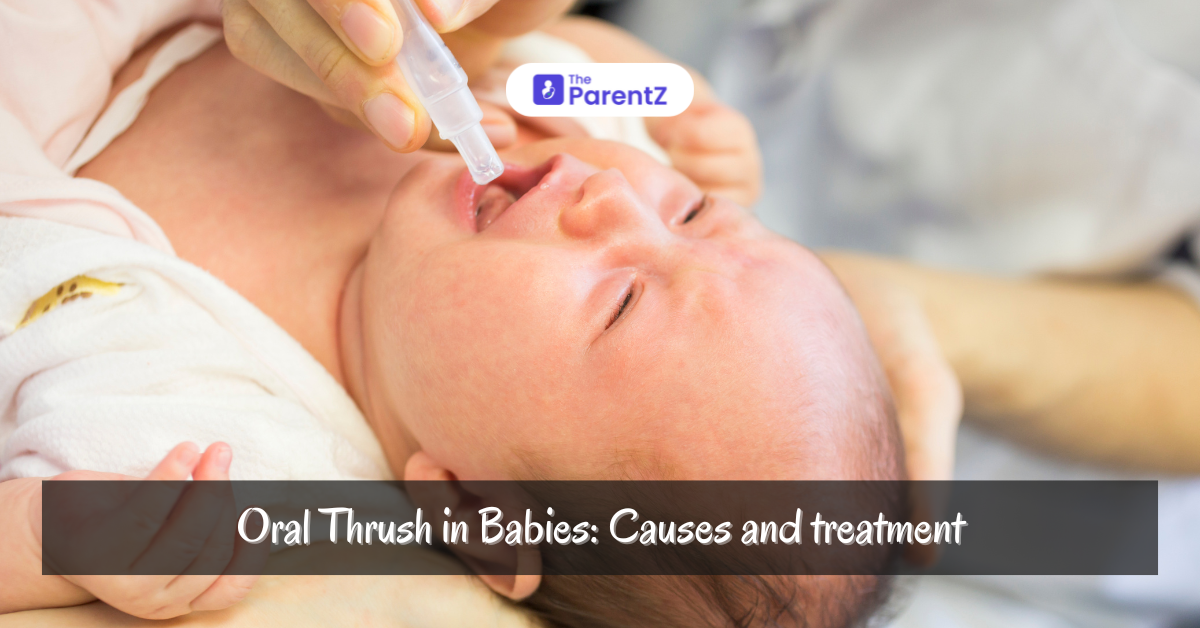Oral thrush, also known as oral candidiasis, is a common fungal infection in babies caused by the overgrowth of the fungus Candida albicans. This condition can affect the mouth and throat, causing white patches on the tongue, gums, and inside of the cheeks. While it’s usually harmless, untreated oral thrush can cause discomfort and feeding issues. This article explores the causes, symptoms, risk factors, and treatments for oral thrush in babies, as well as tips for prevention.
What is Oral Thrush?
Oral thrush is a yeast infection that occurs in the mouths of infants and young children. It appears as white or yellowish patches that resemble cottage cheese. These patches are often found on the tongue, inside the cheeks, and on the gums. Babies with oral thrush may experience pain while feeding, irritability, and difficulty swallowing.
Other Names for Oral Thrush
In addition to oral candidiasis, oral thrush is sometimes referred to as “moniliasis” or “yeast infection of the mouth.” These terms highlight the fungal nature of the infection caused by Candida albicans.
Causes and Risk Factors
Oral thrush develops when there is an imbalance in the microorganisms in the mouth, allowing *Candida* to thrive. The following factors can increase the risk of oral thrush in babies:
- Weakened Immune System: Babies, especially newborns, have underdeveloped immune systems, making them more susceptible to infections.
- Antibiotics: Antibiotic use can disrupt the balance of healthy bacteria in a baby’s mouth, allowing yeast to grow unchecked.
- Breastfeeding Mothers: If a mother has a yeast infection on her nipples, it can be passed to the baby during breastfeeding.
- Pacifiers and Bottles: Prolonged use of pacifiers and bottles can create an environment conducive to yeast growth.
Who is More Prone to Oral Thrush?
Oral thrush is more likely to affect babies under 6 months old, premature infants, and those with compromised immune systems. Babies born to mothers with untreated vaginal yeast infections during delivery may also be at higher risk.
Treatment Options
Treatment for oral thrush typically involves antifungal medications prescribed by a pediatrician. Common treatments include:
- Nystatin or Clotrimazole: These antifungal medications are applied directly to the affected areas in the baby’s mouth.
- Gentle Cleaning: Parents are advised to clean their baby’s mouth with a soft, damp cloth to remove yeast buildup.
- Sterilization of Feeding Tools: Pacifiers, bottles, and other feeding tools should be sterilized to prevent the spread of the infection.
Prevention Tips
Preventing oral thrush involves maintaining proper oral hygiene and minimizing factors that promote yeast growth. Some tips include:
- Sterilizing pacifiers and bottles regularly.
- Ensuring breastfeeding mothers treat any yeast infections on their nipples.
- Limiting antibiotic use when possible, under the guidance of a doctor.
Conclusion
Oral thrush in babies is a manageable condition with the right treatment and preventive care. Parents should be aware of the signs and risk factors, and seek medical advice if their baby shows symptoms. By following good hygiene practices and staying informed, it is possible to prevent and manage oral thrush effectively.





Be the first one to comment on this story.